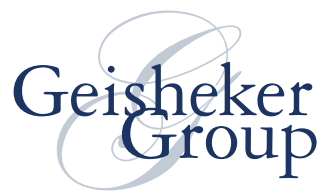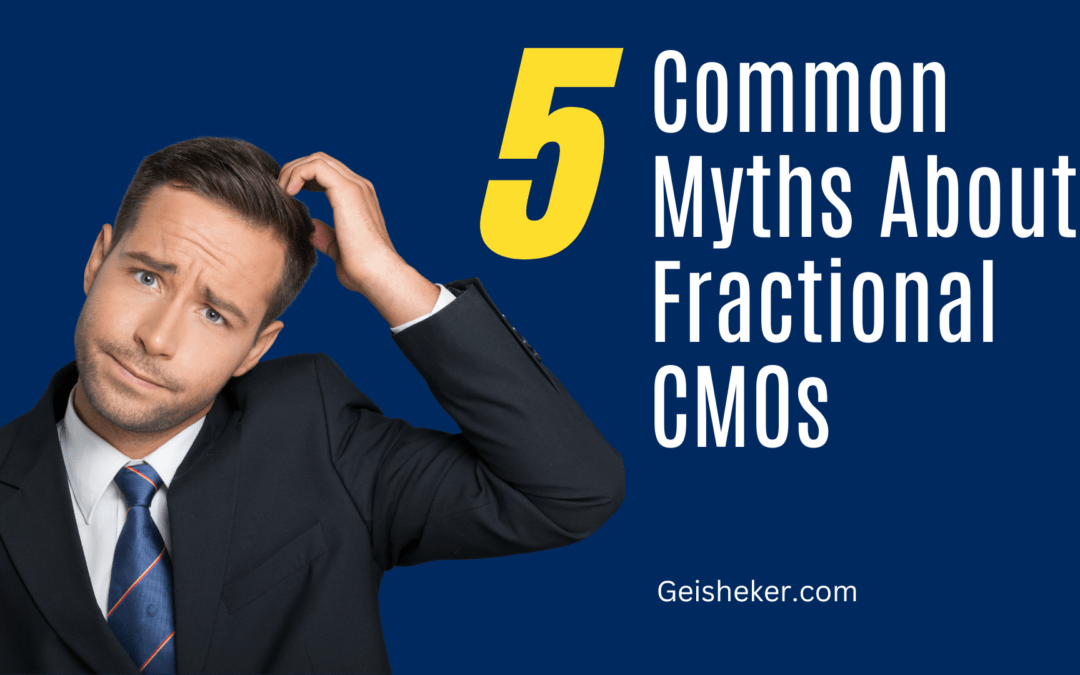The Rise of Fractional CMOs
In recent years, a new type of marketing executive has emerged – the fractional Chief Marketing Officer (CMO). As opposed to a full-time CMO working exclusively for one company, a fractional CMO divides their time across multiple companies as an on-demand marketing expert.
The fractional CMO model offers several benefits. Small and medium-sized companies can access CMO-level strategic thinking without the cost of a mid-six-figure salary. Startups can quickly scale their marketing with an experienced leader without long-term commitments. Even large enterprises utilize specialist fractional CMOs focusing solely on a specific area like digital marketing or brand transformation.
However, fractional CMOs are still relatively new, with several misconceptions about their work. This article will debunk five common myths about fractional Chief Marketing Officers.
Myth #1: Fractional CMOs Have Divided Loyalties
One mistaken assumption is that fractional CMOs will be less committed because they split time across different clients. In reality, the best fractional CMOs are just as dedicated as full-time CMOs. They make the same long-term plans and strategic recommendations they would if they worked for a single company.
The key is fractional CMOs are specialized freelance partners, not traditional marketing temps who bounce from brand to brand. They deliberately limit their client roster to brands matching their expertise and where they can impact. Fractional CMOs may work across multiple companies, but they prioritize and integrate themselves just like a full-time executive.
Myth #2: You Lose Strategic Thinking at a Fractional Level
Another myth is that fractional CMOs handle mainly tactical projects rather than long-term strategy. But the truth is, leading fractional CMOs contribute at a strategic level comparable to any full-time CMO. That’s because they possess the ideal hybrid background of both senior in-house leadership and domain expertise as a consultant or agency executive.
Many fractional CMOs have served as full-time top marketing leaders early in their careers. They’ve managed teams of hundreds of marketers and overseen nine-figure budgets. After a stint as an in-house leader, they shifted into an expert consultant role across multiple brands in an industry. That dual perspective allows fractional CMOs to bring institutional knowledge in their specialty as well as an outside-in, change-agent approach.
Myth #3: You Lose Marketing Operations Oversight with a Fractional Model
A third myth is that fractional CMOs handle broad strategy but don’t oversee marketing operations and execution. While true full-time CMOs manage the centralized marketing team day-to-day, fractional CMOs still align systems, tech stacks, and reporting. They ensure cohesion across disparate programs, from digital advertising to product launches, even if specialized teams execute individually.
The breadth of oversight depends on the fractional CMO’s scope of work. Some serve as interim department leaders, directly managing a client’s marketing staff. Others play an advisory role in building martech infrastructure, performance dashboards, and processes that enable execution. However, fractional CMOs still align strategy, budgets, and systems end-to-end rather than hand-off strategy and walk away.
Myth #4: You Lose Marketing Specialization with a Generalist Fractional CMO
A fourth misconception is fractional CMOs are jack-of-all-trades generalists who can’t match deep specialty expertise. The truth is that most fractional CMOs focus exclusively on one marketing subdomain where they bring 15-20 years of experience. Some fractional CMOs specialize in research, branding, digital commerce, SaaS, communications, innovation, and other niches.
While a full-time CMO oversees the entire marketing mix, fractional CMOs zero in on accelerating one part of the customer lifecycle, whether acquisition, retention, or loyalty. The tradeoff of bandwidth versus depth depends on the client’s needs, but for most mid-sized companies, a fractional CMO strikes the right balance of breadth and expertise.
Myth #5: Fractional Equals Part-Time Results
The biggest misconception is that fractional translates to diluted or part-time results. However, the most accomplished fractional CMOs frequently describe better outcomes at a partial versus full-time capacity. Context switching across industries sharpens creativity. Compressing work into two-to-three days per week per client boosts efficiency. Fractional CMOs expand best practices across their portfolio.
Fractional CMOs focus their time on the highest value-added activities like capability building, program design, demand generation, and talent mentorship. They rely on the client’s team to manage ongoing execution and daily requests—less bureaucracy and delegated tactical work lead to outsized impact.
The Future of Fractional CMOs
For marketing leaders who worry a fractional CMO suggests inadequacy on their part, the opposite is true. The scalability of leveraging subject matter experts aligned to short-term goals or stepping into interim leadership roles is the future. Just as elite consultants, designers, and technologists have specialized agencies for years, fractional marketing execs are now an on-demand option for ambition brands.
In closing, fractional CMOs are hardly a compromise – they are a premium, targeted solution. The very best marketing minds offer their services at a partial capacity to match growth-oriented companies seeking flexibility and greater bandwidth. When utilized strategically, fractional Chief Marketing Officers accelerate results and expand capabilities beyond the limitations of any one leader. They shatter the myth part-time means partial effort or partial outcomes. With the rise of fractional, the future of marketing leadership is both fractional and phenomenal.
Hire a Leading SaaS Fractional CMO
If your company needs a SaaS fractional CMO, consider working with Peter Geisheker. Peter has been providing Fractional CMO services for over 20 years and has expertise in growth tactics and conversion optimization. View Peter’s Fractional CMO case studies.


